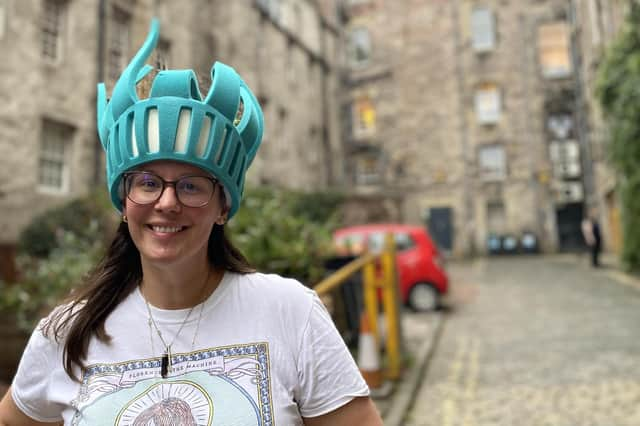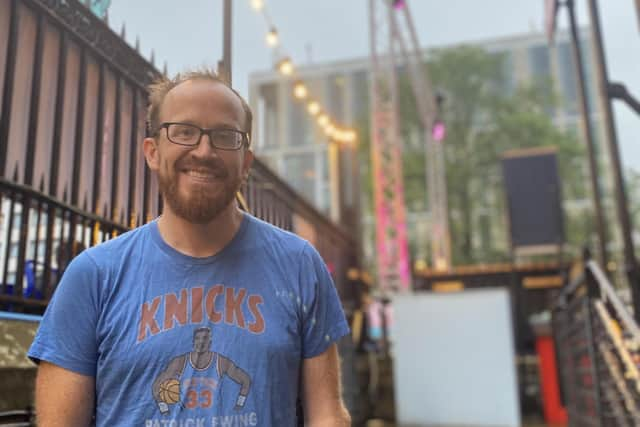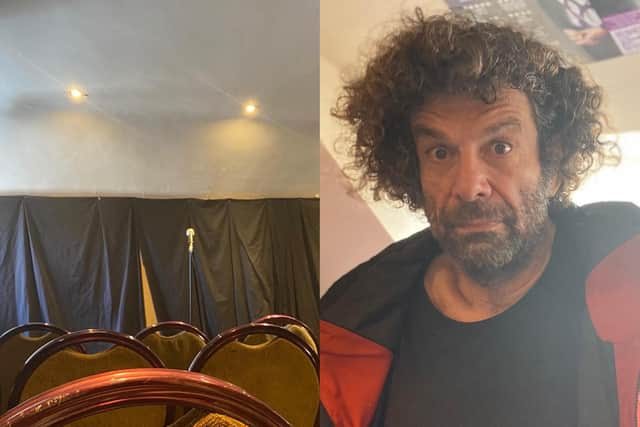Hear the one about the American comedians at the Edinburgh Fringe?


America may be a comedy superpower, but when its comedians come to the Edinburgh Festival Fringe they face a range of unfamiliar challenges. Profile and reputation in the US don't necessarily count for much on this side of the pond, some of the Fringe's more esoteric venues can present unexpected difficulties, and – perhaps most importantly of all – the kind of comedy that works for a US audience might not work in the UK.
Gabe Mollica is the host of the all-American show An American Comedy Showcase at the Laughing Horse @ Bar 50.
Advertisement
Hide Ad"In general America is a little bit more rambunctious," he says, "so we're used to that, but then you come over here and we have people at our shows with their arms crossed looking at us – it’s very intimidating."


Chris Gethard, another US comedian, with a show called A Father and the Sun at the Gilded Balloon Teviot, agrees.
"I’ve had shows where I’ve thought 'man why can’t I crack the code on these people?'" he says.
This year there are 109 American comedy shows on the Fringe, a little over eight per cent of the 1,310 in the comedy section of the programme. The general view from the US comedians I spoke to is that British audiences are more reserved and less interactive than American crowds. However, some of them have also travelled enough within the UK to be alert to the subtle differences in comedy tastes in different places.
Gethard feels that Glasgow crowds are more likely to "make a noise or yell" whereas English audiences "just tighten up if they feel uncomfortable."


"It’s weird for us sometimes," he says, "because Americans will give you a verbal reaction – you hear a gasp, groan, or heckle. I never want to paint people with a universal brush, but my experience with performing to English audiences is just hard, because I don’t know how they feel. They don’t verbally react, so you can cross a line and keep walking without realising you’ve crossed over it.”
Advertisement
Hide AdMollica says he has also become aware of differences in styles between comedians from different parts of the UK.
“Glaswegian comedians’ style is more New Yorkish," he says, "it’s more joke-heavy and a little more rambunctious and that’s closer to the American style than some of the London or even Edinburgh comics."
Advertisement
Hide Ad"I’d say Edinburgh is more into the story elements of comedy," he adds, "so I think there’s even a stylistic difference within Scotland, but I think a lot of American comedians don’t know that.”
Gethard is a successful comedian in America, with an HBO special, a talk show and a prominent acting career, having appeared in the likes of the US Office and Parks and Recreation. However, he's also aware that, in the hyper-competitive comedy market of the Fringe, none of that guarantees sell-out crowds.
“If you come in as an American who’s humble and can admit that our comedy scene isn’t the centre of the universe, I can’t imagine a place better than Edinburgh Fringe," he says. “The thing I’ve told every comic since I first did the Fringe six years ago is that you might get a great review and all those good things might happen, but what I think American comedians should use this festival for is to perfect their craft and ideas. There’s no place else in the world where you’ll be able to do 28 nights in the same month."
How would he describe the differences between British and American comedy?
“As far as the Fringe goes, I think the answer is that people want a show that has some narrative or some themes,” he says, “something thematic that sets it apart, whereas Americans are much more accustomed to, you know, build your 30 to 60 minutes of just how hard can you do the punchlines and
a lot of the time we’ll just be abandoning ship on one thing and on to the next topic – boom! So I think a lot of American comedians come to this festival and get kind of blind-sided.”
Advertisement
Hide AdMaureen Langan has a show called Don’t Make Me Hate You at 32 Below. She feels comedians have much more freedom to speak openly in the UK than they do in the US.
“I notice a lot more respect in crowds here,” she says. “I don’t see the heckling, I don’t see them trying to make it about themselves, I don’t think they’re as obnoxious and I don’t see them be as easily triggered.”
Advertisement
Hide Ad“I can speak freely here," she adds. “[At a show in] America, when I made an innocuous joke when I said Trump was caught with a stripper, I would have been more shocked if he was caught with a book, a table of ten cursed me out and left.”
Another US comedian playing the Fringe this year is New Yorker Al Lubel. Back home, he's appeared on numerous chat shows including The Late Show with David Letterman as well as starring in his own documentary film, Mentally Al. Despite performing to large audiences in America, however, this month he's playing his two Fringe shows in the more modest surroundings of the Laughing Horse @ City Cafe and the Attic at Laughing Horse @ The Counting House.
I catch up with Lubel after a very warm hour in the Attic. In some ways, he says, he feels this quirky venue plays to his strengths. “Part of me likes it because it’s offbeat and different," he says, "and I always feel that an offbeat act like mine is good in an attic.”
Then again, he also admits that the heat can make life difficult. “It’s hot," he says," and you know that can hurt – hotness hurts comedy – I sometimes see people that look physically uncomfortable.”
What does he think are the biggest differences between comedy in the UK and the US?
"I think you guys are a little more verbal,” he says – “more verbally astute as audience members and as comedians. I almost think it’s because you guys started the English language and have more experience with English than we do – you know, were a younger country, and you had Shakespeare
and everything.”
Advertisement
Hide AdJulie Grady Thomas’s stand-up show is titled American Scum, and she can often be found flyering outside her venue at Just the Tonic’s Caves wearing a statue of Liberty hat. She believes American comedians in the UK are automatically associated with loudness and confidence.
“I think British people see us as more confident than maybe we are," she says. "Even if inside we're terrified, we sound like something that is familiar to you, that you associate with high-confidence and Hollywood.”
Advertisement
Hide Ad“And the Fringe is very competitive," she adds. "If you’re not gonna say ‘Hey look at me, this is what I’m doing’ – which is a very American thing – then why are you at the Fringe? In fact, this [flyering] might be the most American experience that most comics have over here, because they have to shout their own praises from the rooftops.”
All shows: runs now ended